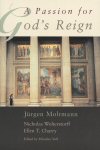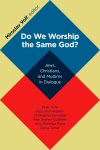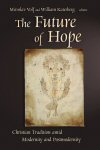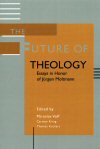Eerdmans Miroslav Volf Collection (6 vols.)
Digital Logos Edition
Overview
Croatian scholar Miroslav Volf is one of the most influential theologians alive today. Volf’s contributions to interfaith dialogue have earned him the title, “theologian of the bridge.” This collection gathers six of his works that explore the broad topics in Christian living, the intersection of faith, politics, and business, and issues in how faith functions in a globalized, postmodern society.
In the Logos edition, the Eerdmans Miroslav Volf Collection is enhanced by amazing functionality. Scripture citations link directly to English translations, and important terms link to dictionaries, encyclopedias, and a wealth of other resources in your digital library. Perform powerful searches to find exactly what you’re looking for. Take the discussion with you using tablet and mobile apps. With Logos Bible Software, the most efficient and comprehensive research tools are in one place, so you get the most out of your study.
Want an even better deal? Get more books at a bigger discount when you order the Eerdmans Bible Reference Bundle 2!

Key Features
- Gathers six works from influential theologian Miroslav Volf
- Explores the future of faith in a globalized, postmodern society
- Discusses the fundamental similarities and differences of the Abrahamic religions
Individual Titles
- A Passion for God’s Reign: Theology, Christian Learning, and the Christian Self by Jürgen Moltmann, Nicholas Wolterstorff, and Ellen T. Charry
- Against the Tide: Love in a Time of Pretty Dreams and Persisting Enmities
- Do We Worship the Same God? Jews, Christians, and Muslims in Dialogue
- The End of Memory: Remembering Rightly in a Violent World
- The Future of Hope: Christian Tradition amid Modernity and Postmodernity edited by Miroslav Volf and William Katerberg
- The Future of Theology: Essays in Honor of Jürgen Moltmann edited by Miroslav Volf, Carmen Krieg, and Thomas Kucharz

In the challenging dialogue of this book, three of today’s most respected Christian thinkers explore the role of theology, the task of Christian learning, and the meaning of the self in our contemporary Western society. Jürgen Moltmann builds a case for the “public” nature of Christian theology and explores how expressions of faith from both the church and the academy relate to significant aspects of modernity. Responses by Nicholas Wolsterstorff and Ellen T. Charry provide a provocative engagement with Moltmann’s views.
A fascinating analysis of Christian theology as it takes on the task of a public theology and confronts modernity and its crises. Moltmann breaks new ground, beyond his previous writings, in his carefully crafted explorations of the relation between history and nature and between the human self and society. The responses by Wolterstorff and Charry are significant contributions in their own right. This volume is highly recommended, and its diversity of viewpoints makes it an outstanding text for discussion groups and classes.
—Francis Schüssler Fiorenza, Harvard Divinity School
How does Christian discourse fit in the curriculum of the secular university? Has Christianity resources for restoring modern humanity to personhood? In a fascinating and light-shedding dialogue, Moltmann and two distinguished critics present sharply contrasting answers to these questions. Seldom does one find so much to chew on in 112 pages.
—Robert C. Roberts, Wheaton College
Jurgen Moltmann (1926–) is an influential German Reformed theologian and professor emeritus of systematic theology at the University of Tübingen. He is best known for his liberation theology/theology of hope, through which God suffers with humanity, giving hope to humanity through the Resurrection.
Nicholas Wolsterstorff (1932–) is the Noah Porter Emeritus Professor of Philosophical Theology at Yale University. With Alvin Plantinga and William Alston he developed a reformed epistemology. He helped establish the journal of Faith and Philosophy, as well as the Society of Christian Philosophers.
Ellen T. Charry is the Margaret W. Harmon Professor of Systematic Theology at Princeton Theological Seminary. She has served as an editor for Theology Today, the Scottish Journal of Theology, and Pro Ecclesia, and is currently editor-at-large for the Christian Century.

Miroslav Volf’s writing beautifully points away from the pettiness and selfishness so prominent in our culture today and toward the love that Christians are called to exemplify. His insights in this volume will inform and inspire all who wish to follow that path of love.
It’s a matter of life or death: either we swim ‘against the tide’ of self-absorption or we drown; either we take God’s love as our criterion or we despair. No one but Miroslav Volf could bring this point home with such conviction, economy, and grace. For admirers of his many books on forgiveness and reconciliation, these captivating essays will be a welcome reminder. For readers just making Volf’s acquaintance, there could be no better introduction to this indispensable Christian thinker.
—Carol Zaleski, professor, Smith College

Often the differences between the three Abrahamic religions—Judaism, Christianity, and Islam—seem more obvious than their commonalities, leading to the question “Do we worship the same God?” Can the answer be “yes” without denying our differences?
This volume brings Jewish, Christian, and Muslim philosophers and theologians together to answer this question, offering rare insight into how representatives of each religion view the other monotheistic faiths. Each of their contributions uniquely approaches the primary question from a philosophical perspective that is informed by the practice of worship and prayer. Concepts covered include “sameness” and “oneness,” the nature of God, epistemology, and the Trinity. Do We Worship the Same God? models serious-minded, honest, and respectful interreligious dialogue and gives us new ways to address an ongoing question.
Throughout their shared history Jews, Christians, and Muslims have asked the question posed in the title of this book, sometimes responding in the affirmative and sometimes in the negative. Too often, the means by which they have arrived at their answers have been left unstated or marred by a lack of clarity and rigor. This book is a welcome corrective to that tendency.
—John Kaltner, professor, Rhodes College
The history of Christian-Muslim relations is over a thousand years old, marked by a sustained quest for interfaith understanding. . . . Do We Worship the Same God? explores the theological aspect of the interfaith issue with insight and candor, underscoring the challenges as well as the opportunities for engagement. A welcome contribution to current discussion of the subject.
—Lamin Sanneh, professor, Yale University
Do We Worship the Same God? invites us to love the one true God with all our mind. These essays challenge us to think carefully about deeply held convictions. I joyfully welcome this important multifaith work on monotheism as a valuable companion to Miroslav’s excellent book Allah: A Christian Response.
—Rick Love, president, Peace Catalyst International

Can one forget atrocities? Should one forgive abusers? Ought we not hope for the final reconciliation of all the wronged and all wrongdoers alike, even if it means spending eternity with perpetrators of evil? We live in an age when it is generally accepted that past wrongs—genocides, terrorist attacks, personal injustices—should be constantly remembered. But Miroslav Volf here proposes the radical idea that letting go of such memories—after a certain point and under certain conditions—may actually be the appropriate course of action.
While agreeing with the claim that to remember a wrongdoing is to struggle against it, Volf notes that there are too many ways to remember wrongly, perpetuating the evil committed rather than guarding against it. In this way, “the just sword of memory often severs the very good it seeks to defend.” He argues that remembering rightly has implications not only for the individual but also for the wrongdoer and for the larger community.
Volf’s personal stories of persecution offer a compelling backdrop for his search for theological resources to make memories a wellspring of healing rather than a source of deepening pain and animosity. Controversial, thoughtful, and incisively reasoned, The End of Memory begins a conversation hard to ignore.
Readers will thank Volf for the sound, biblical reasoning that deepens the conversation on reconciliation between enemies.
—Aspiring Retail
Existentially charged and disciplined, learned and readable, sophisticated and accessible, orthodox and open.
—Reviews in Religion & Theology
The End of Memory is a book that had to be written. From many quarters in present-day society comes the cry, ‘Remember the wrongs done to you.’ Miroslav Volf agrees with that cry but cogently argues that remembering wrongs can be done wrongly. With great learning and deep humane wisdom he reflects on how we can rightly remember the wrongs done to us. In all of Volf’s writing, theology illuminates life and life illuminates theology. Here this two-way illumination is at its very brightest.
—Nicholas Wolterstorff, professor, Yale University

Over the last three decades, a major cultural shift has taken place in the attitudes of Western societies toward the future. Modernity’s eclipse by postmodernity is characterized in large part by the loss of hope for a future substantially better than the present. Old optimism about human progress has given way to uncertainty and fear. In this book scholars from various disciplines—theology, the social sciences, and the humanities—explore the move from a “culture of optimism” to a “culture of ambiguity,” and they seek to infuse today’s jaded language of hope with a new vitality.
The Future of Hope offers a powerful critique of today’s stifling cultural climate and shows why the vision of hope central to Christian faith must be a basic component of any flourishing society. The first section of the book sets the context telling cultural criticism of modernity. The second section focuses on affinities between premodern Christian visions of hope and twentieth-century thought. The final section of the book examines the relationship between postmodern thought, Christian tradition, and biblical hope, addressing how Christians in a postmodern world can best articulate their faith.
Written by truly profound thinkers, these chapters are diverse in their content, methodologies, and temperament, yet they are united by a deep engagement with both the Christian tradition and the larger cultural and intellectual climate in which we live and work. The Future of Hope can thus be read not just as an attempt at retrieval of hope for today but as itself one small act of hope in an age when people too seldom take time to think critically and hopefully.
This book goes deep into issues of postmodern Christianity that are helpful for youth workers to reflect on. While it’s not light reading, this book is definitely worth your time.
—Youthworker Journal
In a world dominated by greed, scandal, illness, poverty and war, The Future of Hope not only critiques contemporary western culture but also provides a positive vision for the future.
—Theology
William Katerberg is associate professor of history at Calvin College, Michigan.

The essays in this volume attempt to revitalize theology as it confronts a difficult future. Despite the formidable obstacles that threaten the very survival of theology in the next century—religious and cultural plurality; the marginalization of theology in public discourse; increasing abstraction in the practice of theology; pressing issues of gender, race, poverty, and ecology; the seemingly archaic voice of theology in post-Christian societies—the contributors to this volume all believe in the future of theology as a vibrant discipline.
The Future of Theology is organized in three parts. “Challenges” deals with the external or internal problems that theology is facing. “Perspectives” offers proposals on how to meet the challenges. “Themes” concentrates on various issues that need special attention today. Together, these essays succeed in setting the theological agenda for the future of theology, and thereby serve as a fitting tribute to this volume’s esteemed honoree.
This title is included in the following collections
You can save when you purchase this product as part of a collection.
Bible Reference Bundle 2.0
$4,512.95$3,599.99Logos 8 Collector's Edition Le...
$11,399.99$11,399.99Logos 8 Ultimate Legacy Librar...
$21,749.99$21,749.99Eerdmans Ultimate Collection (...
$37,403.33$27,999.99
About Miroslav Volf
Miroslav Volf is director of the Yale Center for Faith and Culture and Henry B. Wright Professor of Systematic Theology at Yale Divinity School.